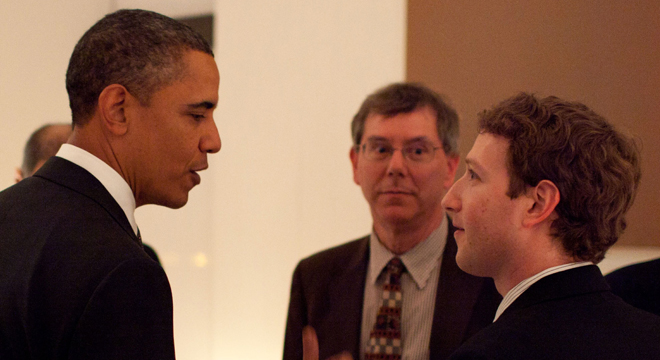A new study by two researchers at Columbia University and the University of Berkeley finds that Facebook political campaign ads are ineffective, with voters scarcely remembering they ever saw them.
Using the Facebook ads as model, the researchers conclude online ads more generally “appear to leave at most fleeting impressions on the vast preponderance of users who do not click through” and that “they are thus quite unlikely to play a meaningful role in determining the fate of a political campaign or retailer.”
“Speaking for myself I thought the results were surprising,” said David Broockman, the study’s lead author and a poli-sci graduate student at the University of California, Berkeley. “Like most Americans I use Facebook every day and think it’s a great product. However, on reflection, I can’t remember any Facebook ads I’ve seen in the last week — and it appears most Americans are the same.”
The study polled 2,984 registered voters all in the same constituency (not identified by the authors) at random, after paying for Facebook ads that were shown to about 15,000 individuals in the same area. The study will soon be submitted for peer-review but has not been accepted into a journal for publication.
A randomly selected control group consisting of 40 percent of the total poll group, about 1,193 people, weren’t shown the ads.
Facebook declined to comment when asked about this study by TPM.
But other Facebook ad customers dispute findings of the study, noting that it was highly targeted — focusing on just state legislative candidates’ ads shown over a short period (October 8 through 12) and were all of the same type of Facebook ad, when the social network offers multiple different options.
“This was just one one state legislative race,” said Keegan Goudiss, a partner at Revolution Messaging, progressive digital strategy firm, “You would think that they would at least compare several races at whatever level — legislative or above.”
Goudiss said Revolution had successfully used Facebook ads to drive “Likes” to clients’ pages and to build online engagement in political messages, such as when its “Angry Buckeyes” video criticizing Ohio Republican Gov. John Kasich went viral on the website.
Goudiss pointed out that there was only one type of ad employed in the study — one of Facebook’s “Marketplace” ads, which appears as a 125 pixels by 255 pixels box to the right hand side of a user’s Facebook page.
He said that the candidate in this study may have seen a higher click-through rate had he used a “Premium Homepage Ad,” which is larger.
Back in 2010, Nielsen surveyed 800,000 Facebook users about Facebook ads purchased by 14 brands and concluded that “Facebook-home-page ads on average generated a 10 percent increase in ad recall, a 4 percent increase in brand awareness and a 2 percent increase in purchase intent,” among those who saw the ad, as Advertising Age reported.
Still, the authors of the study stand by the fact that it applies more generally.
“The experiment estimates the effect at zero, but it cannot say that it is EXACTLY zero,” Broockman wrote to TPM. “It is possible that a very small number of people remembered the ads. But just like one undecided voter changing their mind from one day to the next wouldn’t itself register in a national poll, effects of the ads of such small sizes wouldn’t be able to be picked up in our study.”
Broockman pointed to other studies showing that more traditional political advertising and outreach — TV and radio ads and canvassing, for example — are far more effective ways of changing minds and influencing voters.
“We can be confident enough — that is, using the language of polls, the margin of error is small enough — to rule out the kind of effects that could have a meaningful impact on candidates’ campaigns,” Broockman added, regarding online ads.
Correction: This article originally incorrectly stated that the control group consisted of people who reported not being Facebook users. In fact, this was not the case. The control group consisted of verified non-Facebook users. We have since updated the article in copy to correct the error and we regret it.






